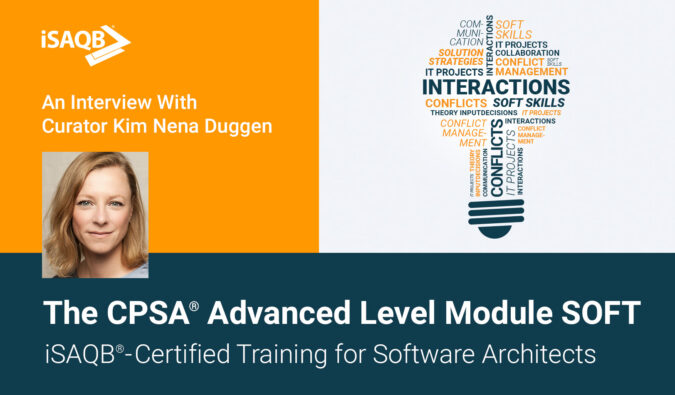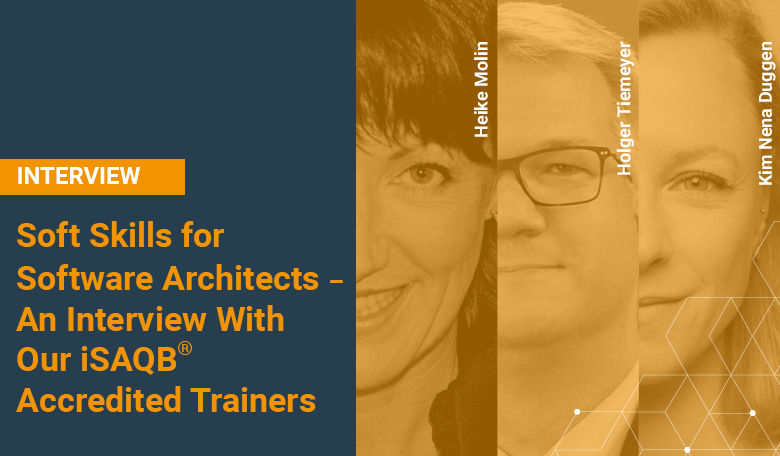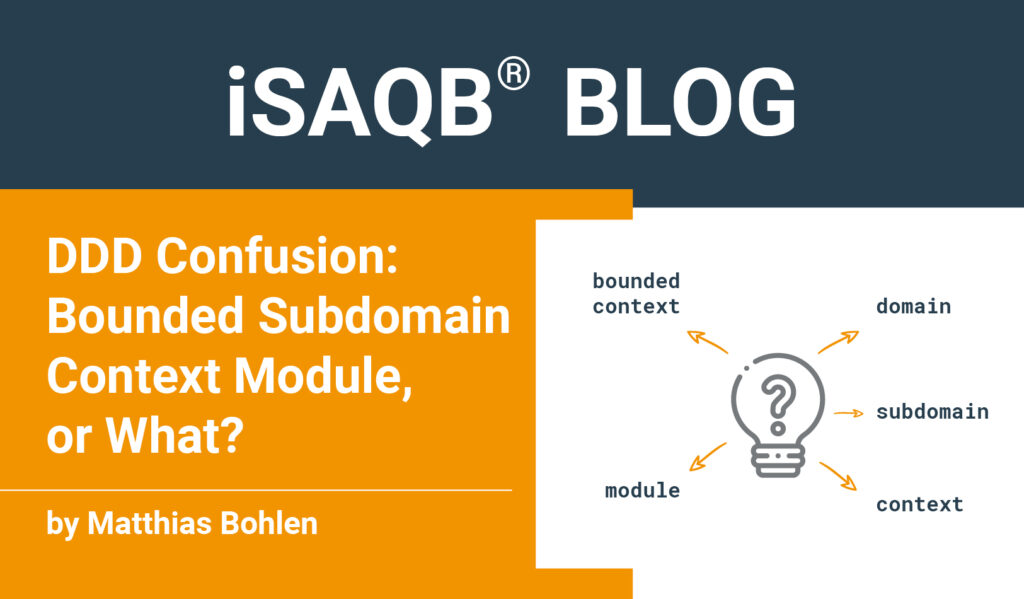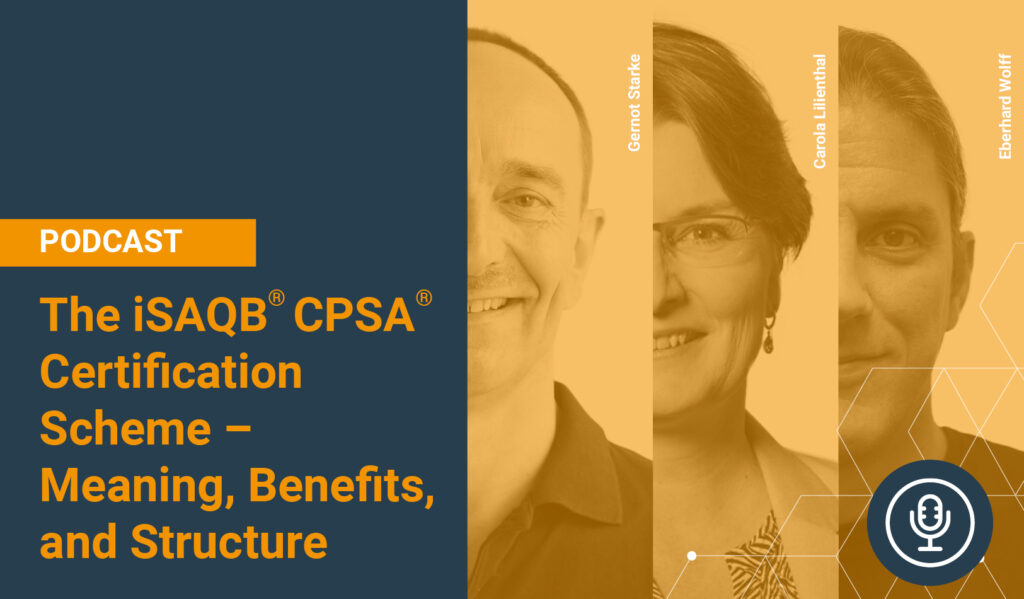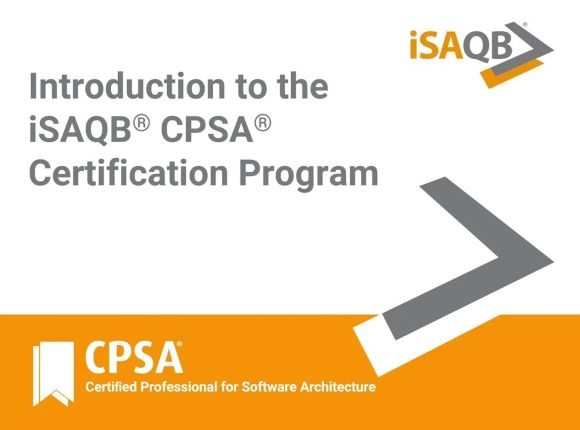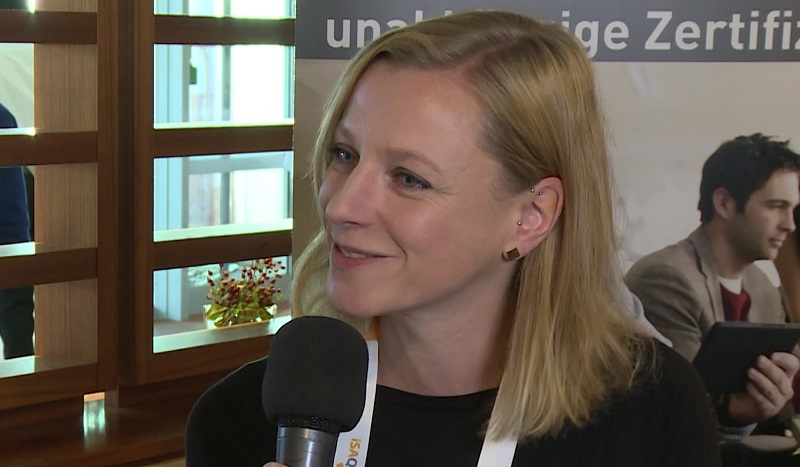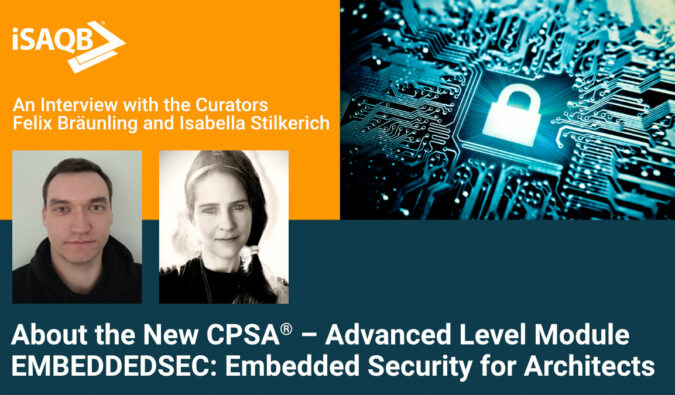Why Should I attend the CPSA® Advanced Training Soft Skills for Software Architects (SOFT)?
An Interview With Curator Kim Nena Duggen
The CPSA Advanced Level is the second step within the iSAQB’s multi-level CPSA program (Certified Professional for Software Architecture). Participants can choose from 17 trainings, so-called modules, in three areas of competence – technological, methodical, and communicative competence.
The most important training when it comes to communicative competence is the Advanced Level module SOFT (Soft Skills for Software Architects).
Kim Nena Duggen, curator of the Advanced module SOFT, took the time to answer some very relevant questions that will give a good overview of what to expect from this training course.
How is the module SOFT relevant for my professional practice as a software architect?
Hard skills such as technological know-how or methodological skills such as architecture documentation or requirements analysis are just as important to me as the proficient use of soft skills.
IT projects are characterized by a collaboration with people. As an architect, I usually do not have a disciplinary leadership role, but at the same time I have to consider many different needs.
Sometimes these needs are contradictory, and conflicts arise. Handling these interactions and escalations is therefore essential in the range of tasks of software architecture.
Which skills do I acquire from this module, what exactly do I learn in this training course?
The training course is divided into three parts: Communication, moderation, and conflict management.
In all three sections, theoretical basics as well as consistently practicing all methods and tools, and transferring them into practice will help software architects to acquire these skills.
Can I really learn soft skills in a training course?
I am convinced that this is possible, otherwise I wouldn’t provide these training courses. 😉
It is important that there is no chalk and talk teaching, but that all models, all methods and tools are accompanied by a clear motivation as to why they are relevant for architects.
Discussions are explicitly allowed! Also, the training is a continuous sequence of short theory inputs and detailed exercises in my opinion. In addition, I recommend practicing with participants’ own practical examples in order to ensure the transfer to their own practice.
If participants prepare their own meetings, which used to be difficult to manage in the past, or deduce solution and prevention strategies for their own conflict cases at their organizations, then a clear change compared to before will become apparent after the training course.
You would like to learn more about the CPSA Advanced Level module SOFT? Please visit the SOFT module web page.
You would rather find and book a suitable SOFT training course right away? Then check out our training calendar.
Share this article:
Related Posts
- « Previous
- 1
- 2
- 3
About the Author


